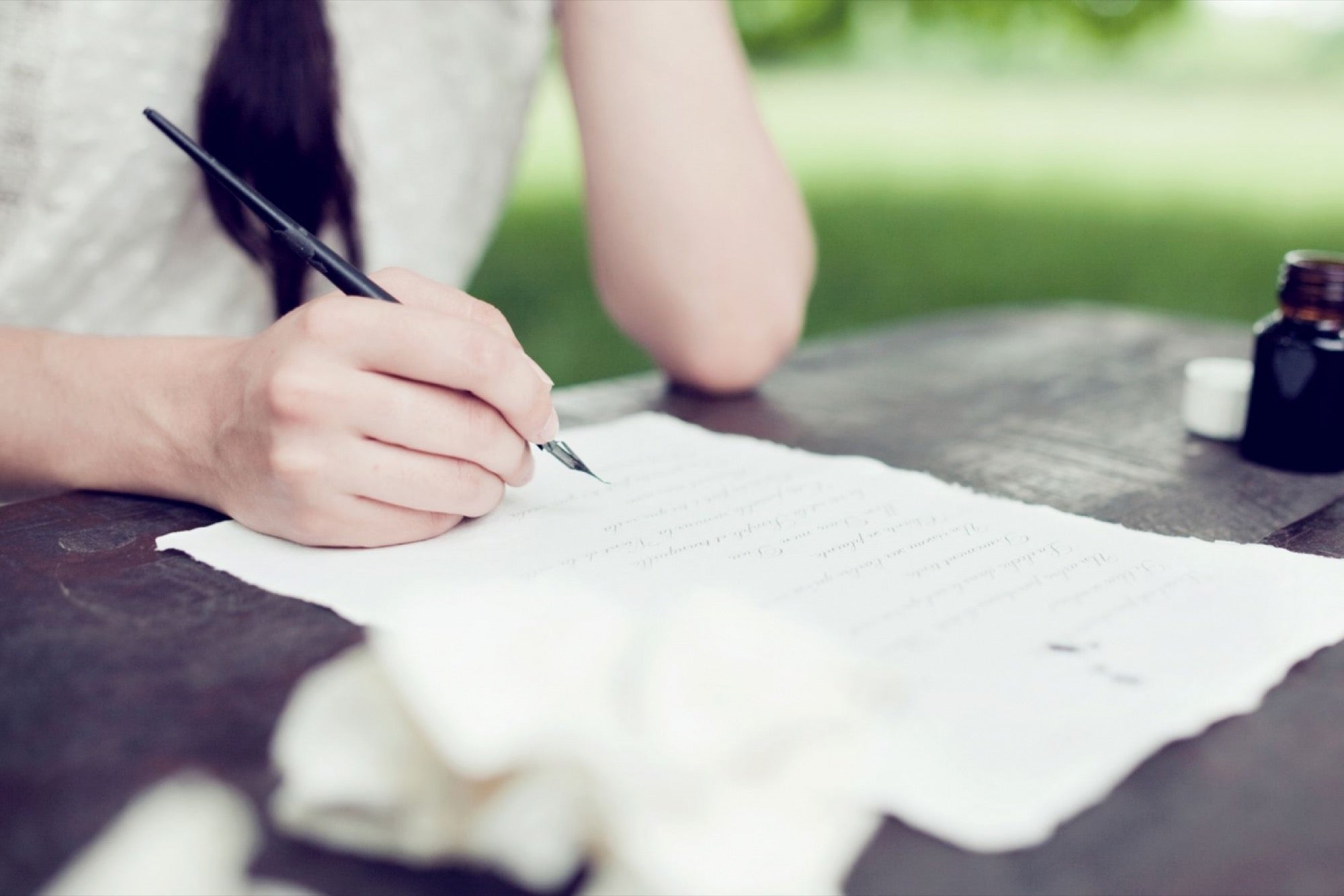The Business Benefits of the Handwritten Letter Somehow, the countless emails people write now seem unlikely to be read a century from now like we read the letters people penned long ago.
By Jacqueline Whitmore Edited by Dan Bova
Opinions expressed by Entrepreneur contributors are their own.

You open up your email in the morning and you are greeted by dozens, if not hundreds, of emails. You meet the postman and collect the day's flyers and bills. Every day it's the same old thing, so why not break out from the norm, stand out, and make an impact? Bring back the handwritten letter.
Because the Internet is so convenient, it is easy to dash off an email. But electronic messaging simply does not have the same impact as a carefully-composed letter. It is a thrill to find the hand-addressed envelope hiding amidst the junk mail. You can guarantee that your letter will be the first item opened.
It has become so rare to receive a handwritten correspondence that the receipt in itself is a celebration to be savored. In the words of writer and literary critic Anatole Broyard, "In an age like ours, which is not given to letter-writing, we forget what an important part it used to play in people's lives."
Writing a letter can have some surprising benefits as well. Here are some ways this simple act can boost your visibility and business success.
You show you care.
Taking the time to gather pen and paper and put your words down without editing tools or spellcheck takes consideration, an effort that is appreciated by the recipient. Your heartfelt message in your own handwriting speaks volumes to convey friendship, thanks, sympathy or congratulations.
Related: What Your Handwriting May Reveal About Your Confidence, Creativity and Health (Infographic)
You advance your customer relations.
Strike gold in your customer relations initiative by dropping a handwritten note to your best customers or clients. I recently made an investment in my business by purchasing my very own bespoke thank-you notes designed by internationally renowned master calligrapher Bernard Maisner. Whenever someone receives one of my notes, I always receive a compliment.
You create a keepsake.
More often than not, the person you are writing to will keep your letter nearby; something they are not likely to do with an email. Letters can be kept for years and re-read over and over again, which brings your thoughtfulness to mind frequently. "Letters are among the most significant memorial a person can leave behind them," said Johann Wolfgang von Goethe.
Related: With This Startup, a Handwritten Thank You Note Is a Click Away
You set yourself apart.
When was the last time you received a handwritten letter? Probably not in many years. Stand out from the crowd with a few well-crafted phrases set in your unique handwriting. You will surely be noticed and remembered for your effort.
You use more of your senses.
While typing can be mindless, studies show that writing integrates three brain processes: visual, motor and cognitive skills. You see the paper and your words, you use your fine motor skills to form the words, and you stimulate your brain to remember the shapes of each letter as you write. It's exercise for the brain.
You have to focus.
The act of writing causes you to fully concentrate on the words you are putting down on paper. You are forced to move more slowly and are more likely to focus your thoughts into the message that will be received than be distracted by numerous other tasks. Before I begin writing, I always compose my letter on the computer first. That way, when I put my thoughts on nice stationery, I avoid making mistakes.
Related: 8 Tips for Penning a Thank-You Note That Will Be Treasured
You reinforce tradition.
Up until the 1990s, people used letters instead of emails to correspond. They cherished the arrival of a letter that shared news, conveyed affection or sealed a deal. We lost a piece of history when we stopped writing letters.
Letters are tangible and tactile. They last, while electronic communications do not. With your letter, you will follow centuries of tradition and create a memoir to be treasured long after it is written and sent.
Handwriting a letter may take a little more time, but the effort will reap benefits many times over. It is a tool worth nurturing for your business success.










